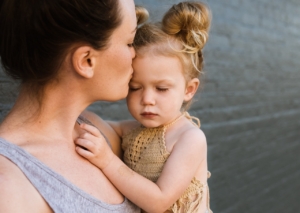Date Ideas for Couples in Newport Beach: What to Do When You Can’t Find Childcare
If you’re a parent, you’re likely familiar with the feeling of burnout and overwhelm. Unfortunately, when we feel this way, intentional connections with our spouses often get buried under piles of laundry, to-do lists, and dirty dishes. Here are some creative date ideas for couples in Newport Beach who might be struggling to find childcare.
Date nights aren’t just a luxury; they are an investment in your relationship. Therapists often recommend weekly dedicated date nights for couples to solidify their relationship, rekindle the romance, and improve communication. While most parents would cherish some alone time, arranging childcare when you need it isn’t always straightforward.
Date Ideas for Couples in Newport Beach: Creative Childcare
Even if your trusted sitters aren’t available and you feel you’ve exhausted all options, don’t give up hope in finding responsible childcare. There are alternatives. Here are some innovative date ideas for couples in Newport Beach to consider.
Parents’ Night Out Programs
Check with local community centers, churches, dance studios, or gymnastics facilities. Many of them offer “Parents’ Night Out” programs where they provide childcare for a few hours at a reasonable rate. Here are some options for Parents Night Out in Orange County. While this option requires some planning and a modest budget, it can provide you with much-needed time alone with your spouse. As a bonus, your children may enjoy meeting new people and engaging in exciting activities.
Dates While the Kids Are Occupied
Don’t overlook prime opportunities for alone time with your partner. Dates don’t always have to be at night! Get creative with your schedules. Consider meeting your spouse during your lunch breaks or even taking an hour of vacation time to spend with your spouse while the kids are in school.
 Dropping the little ones off at soccer practice? Instead of running errands or sitting on the sidelines, sneak away for a coffee with your mate. Rethink your schedule; you may have overlooked some date-time possibilities.
Dropping the little ones off at soccer practice? Instead of running errands or sitting on the sidelines, sneak away for a coffee with your mate. Rethink your schedule; you may have overlooked some date-time possibilities.
When your kids are little, put them in a stroller for a nice walk around the neighborhood. Give your kids a snack as a distraction and spend a moment chatting with your spouse.
Upscale Restaurants
Indulge in a worry-free dining experience by choosing an upscale restaurant that offers babysitting services. While this type of service may not be available in your hometown, exploring nearby metropolitan areas may lead you to the perfect spot. Enjoy a night out knowing that your children are being well-supervised, allowing you to savor the dining experience with your partner.
Sleepovers and Lock-ins
Explore options for elementary or middle-school-aged children. Some church youth groups organize “lock-ins” where the students stay overnight at the church to play games and enjoy snacks. Museums and community centers occasionally offer sleepover programs through their community outreach and educational initiatives. These options provide a fun and safe environment for kids while offering parents a chance to enjoy some alone time.
Work Out Together
Does your gym offer childcare? If so, plan a workout date with your spouse. If you’re accustomed to solo workouts, merge your routines and work out together while enjoying the perks of childcare services. After your workout, savor a healthy snack before picking up your kids. Not only are you prioritizing your health but enjoying quality time together.
At-Home Dates
An at-home date night can be a delightful way to spend quality time together with your spouse when getting a sitter is not an option. Here are some creative ways to create memorable experiences together.
Early Breakfast or Late Dinner
 Make the most of your children’s sleep schedule by planning an early-morning breakfast date or late-night dinner. Get up before the sun rises and share the view and a quiet moment with your honey over a cup of coffee.
Make the most of your children’s sleep schedule by planning an early-morning breakfast date or late-night dinner. Get up before the sun rises and share the view and a quiet moment with your honey over a cup of coffee.
If you’re not a morning person, put the kids to bed early and share a relaxed late-night meal. Prepare as much as you can beforehand to avoid spending your precious time together cooking or order take-out from your favorite restaurant. Set the mood with candles and soft music. After the meal, dance together for a romantic end to your at-home date.
Let the Kids Be in Charge
Bring the charm of an upscale restaurant home by surprising your spouse with a homemade dinner. Keep the children entertained by involving them in meal preparation. Assign them tasks like setting the table or decorating it with freshly picked flowers. Create a handwritten menu or print one off the computer and allow your children to decorate.
Once your spouse has come home from work, dim the lights and let the date begin. Ask the children to act as hosts and teach them to lead your spouse to the special table. Order off your homemade menu (with only one available option) and allow the children to serve as your waitstaff. Show appreciation by tipping them with a little extra allowance or a trip to the ice cream parlor.
Home Theater
Unable to go to the theater because you have no sitter? Create a home theater experience by setting up a projector and big screen for the kids to watch a movie with headphones. Prepare their favorite snack for them to enjoy as they watch their movie.
Snuggle up in a different room with your partner and watch a favorite film together. Don’t forget to get an extra decadent snack to enjoy. This setup should keep the kids occupied long enough for you to enjoy some quality time together.
Indoor or Backyard Camping
Create an inviting space that will captivate your children. Surprise the kids with a blanket fort and indoor campsite filled with cozy things, new activities, and yummy snacks. Alternatively, set up a tent in the backyard to keep them entertained.
While the kids enjoy their new space, create a romantic setting for you and your spouse. Share a meal, a movie, or a delicious dessert and conversation. Conclude the evening with a family bonfire. If you want more alone time, wait until the kids are asleep and transform your backyard into a magical romantic oasis with fairy lights, soft music, and cozy blankets.
Invite Some Friends
 If your children are old enough to entertain themselves with friends, consider inviting some of their buddies over to play. Plan a fun activity such as a scavenger hunt, backyard obstacle course, or a crafting corner. While they’re engaged with friends, take the opportunity to spend quality time with your spouse. Work on a puzzle together, play a game, or simply take a few moments to enjoy each other’s company.
If your children are old enough to entertain themselves with friends, consider inviting some of their buddies over to play. Plan a fun activity such as a scavenger hunt, backyard obstacle course, or a crafting corner. While they’re engaged with friends, take the opportunity to spend quality time with your spouse. Work on a puzzle together, play a game, or simply take a few moments to enjoy each other’s company.
Indulge for the Day
Occasionally, it’s okay to indulge in some things that are normally limited or forbidden. Keep your children occupied by allowing them to taste the forbidden fruit. If you typically restrict screen time, consider planning a FaceTime conversation with a cousin or friend. Set up a gaming system and check out new games from the library to let them have a little gaming fun.
You might also consider letting the kids play with those messy toys that usually require a lot of cleaning up and are typically tucked away. Find something out of the ordinary that they don’t usually get to interact with and schedule it for when you and your spouse want to have a quiet and uninterrupted date night at home.
What is the goal of date night?
Ideally, date night is a time for you to connect with your spouse in a meaningful way. It’s a time to set aside the stressors of life, make eye contact with one another, and talk. Some couples with kids struggle with the feeling that they have become co-parents versus partners. For some couples, I recommend setting aside conversations about parenting and instead engage one another in deeper, more intimate questions:
- What have you been thinking about lately? What have you been feeling?
- What’s a dream that you wish to fulfill?
- Where are you with your faith currently? What is God teaching you right now?
- Are there ways that we can be more intentional with one another and strengthen our connection?
- What are some things that I can do to love you better in this season?
Is date night enough? Christian Couples Counseling in Newport Beach
While date night ideas for couples in Newport Beach are a wonderful way to strengthen your bond with your spouse, they may not address all your relationship issues.
If you and your spouse feel disconnected or want to work through specific challenges, consider scheduling an appointment with a Christian counselor in Newport Beach, California. Therapy can deepen your emotional connection, enhance or reignite physical intimacy, and resolve conflicts with the help of an impartial professional. Contact us today at Newport Beach Christian Counseling to learn more.
When it comes to nurturing and enriching your relationship, carving dedicated time in your busy schedule to focus on each other is crucial for a fulfilling relationship. Don’t let your lack of childcare hinder your relationship growth. Take the advice of most Christian therapists and view date night as a valuable tool to strengthen your connection.
“Holding Hands”, Courtesy of mina6120, Pixabay.com, CC0 License; “Family on a Walk”, Courtesy of MabelAmber, Pixabay.com, CC0 License; Pixabay.com, CC0 License; “Coffee and Dessert”, Courtesy of StockSnap, Pixabay.com, CC0 License

 There’s a lot that’s been written about friendship. One of the best reflections on friendship was produced by C. S. Lewis, and in The Four Loves, he has these two gems: “Friendship …is born at the moment when one man says to another ‘What! You too? I thought that no one but myself…’”. He also wrote: “Friendship is unnecessary, like philosophy, like art…. It has no survival value; rather it is one of those things which give value to survival.”
There’s a lot that’s been written about friendship. One of the best reflections on friendship was produced by C. S. Lewis, and in The Four Loves, he has these two gems: “Friendship …is born at the moment when one man says to another ‘What! You too? I thought that no one but myself…’”. He also wrote: “Friendship is unnecessary, like philosophy, like art…. It has no survival value; rather it is one of those things which give value to survival.” The lack of boundaries is one of the main things that can help you identify a codependent dynamic in a relationship. To address codependence in your friendship, you need to be able to identify it, whether you’re the codependent one, or the one who’s benefitting from this dynamic. Some of the signs to look out for include the following:
The lack of boundaries is one of the main things that can help you identify a codependent dynamic in a relationship. To address codependence in your friendship, you need to be able to identify it, whether you’re the codependent one, or the one who’s benefitting from this dynamic. Some of the signs to look out for include the following: This is one of the reasons why a codependent person will stay in an unhealthy relationship, or why they will struggle to say “no” or to give valid criticism about their friend’s behavior – it may mean that their friend won’t give them the approval they crave, so it’s easier to just go with the flow.
This is one of the reasons why a codependent person will stay in an unhealthy relationship, or why they will struggle to say “no” or to give valid criticism about their friend’s behavior – it may mean that their friend won’t give them the approval they crave, so it’s easier to just go with the flow. Talk with your friend You should have open and honest communication with your friend, discussing your feelings and concerns about the dynamics of the relationship. You can both, in your own way, work together toward a healthier, more balanced relationship.
Talk with your friend You should have open and honest communication with your friend, discussing your feelings and concerns about the dynamics of the relationship. You can both, in your own way, work together toward a healthier, more balanced relationship. Keep a routine
Keep a routine It is also essential to spend time doing things you enjoy. Even for someone who has limited hobbies, find something you like. Create using drawing, painting, or other creative resources. Invest some money in learning something new. A person with functioning depression needs to have something that helps them feel more productive and move forward in life.
It is also essential to spend time doing things you enjoy. Even for someone who has limited hobbies, find something you like. Create using drawing, painting, or other creative resources. Invest some money in learning something new. A person with functioning depression needs to have something that helps them feel more productive and move forward in life. Take time off
Take time off Due to chemical imbalances in the brain, many people deal with mental health issues without being able to express what they’re dealing with clearly. Being open and letting people know exactly how you’re feeling may help take the pressure off having to perform a certain way for people to like them.
Due to chemical imbalances in the brain, many people deal with mental health issues without being able to express what they’re dealing with clearly. Being open and letting people know exactly how you’re feeling may help take the pressure off having to perform a certain way for people to like them.
 Our children are watching us more than we think, and we must model our faith for them to witness. In the Daily Grace Gospel at Home magazine, Tiffany Dickerson states that “when we make these spiritual disciplines our priority, a natural overflow of discipleship occurs when our children witness our love for the Lord and others.”
Our children are watching us more than we think, and we must model our faith for them to witness. In the Daily Grace Gospel at Home magazine, Tiffany Dickerson states that “when we make these spiritual disciplines our priority, a natural overflow of discipleship occurs when our children witness our love for the Lord and others.” I encourage you to take a deep breath and trust that God loves your child even more than you do. The questioning that happens in our faith is part of our spiritual development and it’s important that we encourage and support our children through this process rather than use fear or punishment.
I encourage you to take a deep breath and trust that God loves your child even more than you do. The questioning that happens in our faith is part of our spiritual development and it’s important that we encourage and support our children through this process rather than use fear or punishment. In the same Daily Grace article, Tiffany Dickerson reminds us that “Jesus is the point of our discipleship. It does not have to be hard, filled with charts, graphs, and items on a list to check off. It simply needs to be intentional. As parents, we not only grow in our walk with the Lord, but we pray for clarity to see those moments when we can plant the seeds of the gospel in our children’s lives.”
In the same Daily Grace article, Tiffany Dickerson reminds us that “Jesus is the point of our discipleship. It does not have to be hard, filled with charts, graphs, and items on a list to check off. It simply needs to be intentional. As parents, we not only grow in our walk with the Lord, but we pray for clarity to see those moments when we can plant the seeds of the gospel in our children’s lives.” The goal of DBT group therapy is not to work through feelings as a group. It is to help individuals learn new skills needed to approach difficult emotional situations. DBT group is a place to get encouragement and support while acquiring the skills needed, but the focus isn’t just for that purpose. The only time personal details are shared is if the individual wants to share. There are skills to be learned and homework that will help you use the tools you are given.
The goal of DBT group therapy is not to work through feelings as a group. It is to help individuals learn new skills needed to approach difficult emotional situations. DBT group is a place to get encouragement and support while acquiring the skills needed, but the focus isn’t just for that purpose. The only time personal details are shared is if the individual wants to share. There are skills to be learned and homework that will help you use the tools you are given. Clearing mental and emotional clutter releases what served a previous environment or season but won’t work in the new setting. As we learn to live with a mind that’s opened to dream with God, a heart to desire with God, and hands to do with God, we carve a welcome space for the Lord to manifest His Will on the earth.
Clearing mental and emotional clutter releases what served a previous environment or season but won’t work in the new setting. As we learn to live with a mind that’s opened to dream with God, a heart to desire with God, and hands to do with God, we carve a welcome space for the Lord to manifest His Will on the earth. Anxiety has a physiological effect on a person. That’s a way of saying that it changes how your body functions, and how you experience the world around you. Anxiety can also affect your life as a Christian in several ways. Physically, anxiety can lead to shortness of breath, trembling, shaking, heart palpitations, sweating, tension headaches and muscle pain, insomnia and fatigue, stomach problems, or feeling lightheaded.
Anxiety has a physiological effect on a person. That’s a way of saying that it changes how your body functions, and how you experience the world around you. Anxiety can also affect your life as a Christian in several ways. Physically, anxiety can lead to shortness of breath, trembling, shaking, heart palpitations, sweating, tension headaches and muscle pain, insomnia and fatigue, stomach problems, or feeling lightheaded. Scripture offers many encouragements and reminders to help us deal with our anxieties. Yes, our circumstances may seem uncertain, but God cares for us. Jesus reminds His followers about God’s care for all His creation, including us, and that is why we ought not to be anxious (Matthew 6:25-34). Instead of carrying them ourselves, we are to cast our anxieties on God because He cares for us (1 Peter 5:7, ESV).
Scripture offers many encouragements and reminders to help us deal with our anxieties. Yes, our circumstances may seem uncertain, but God cares for us. Jesus reminds His followers about God’s care for all His creation, including us, and that is why we ought not to be anxious (Matthew 6:25-34). Instead of carrying them ourselves, we are to cast our anxieties on God because He cares for us (1 Peter 5:7, ESV). Anxiety can eat you up inside if you keep it bottled up. That’s one reason praying about your anxieties makes a difference. Putting your anxieties into words helps you to start getting a handle on them. Sometimes you gain a clearer picture of what’s at the root. By placing it before the Lord and leaving it to Him, it gives room for Him to give you comfort and peace.
Anxiety can eat you up inside if you keep it bottled up. That’s one reason praying about your anxieties makes a difference. Putting your anxieties into words helps you to start getting a handle on them. Sometimes you gain a clearer picture of what’s at the root. By placing it before the Lord and leaving it to Him, it gives room for Him to give you comfort and peace. Other forms of self-care aside from exercise include ensuring that you get good sleep, as this helps you with emotional regulation. Take breaks, as that helps you to reduce stress and avoid being emotionally reactive.
Other forms of self-care aside from exercise include ensuring that you get good sleep, as this helps you with emotional regulation. Take breaks, as that helps you to reduce stress and avoid being emotionally reactive. However, technology has allotted us so much time that we fit too much into our day and our minds get overly stimulated. Cell phones also add to our stress because we are constantly online and available. Whether scrolling through a social media feed, texting a friend, or looking at the Internet to find a bargain, our minds are constantly stimulated with information.
However, technology has allotted us so much time that we fit too much into our day and our minds get overly stimulated. Cell phones also add to our stress because we are constantly online and available. Whether scrolling through a social media feed, texting a friend, or looking at the Internet to find a bargain, our minds are constantly stimulated with information. Allow the body time to rest. Take sixty minutes each day when you normally look at a screen and get into a dark, cool room. Place a cold washcloth or sleep mask over your eyes. Listen to the sound of your breathing. Take deep breaths for sixty minutes. Try not to sleep (don’t fight it if you must sleep). Catching up on physical rest may be a way for your body to restore its cortisol levels.
Allow the body time to rest. Take sixty minutes each day when you normally look at a screen and get into a dark, cool room. Place a cold washcloth or sleep mask over your eyes. Listen to the sound of your breathing. Take deep breaths for sixty minutes. Try not to sleep (don’t fight it if you must sleep). Catching up on physical rest may be a way for your body to restore its cortisol levels. While this may not be ideal for everyone, if work stresses you out too much, find a way to work smarter, not harder. Is it necessary to work forty hours? Can you be more efficient so you’re not working so hard throughout the week?
While this may not be ideal for everyone, if work stresses you out too much, find a way to work smarter, not harder. Is it necessary to work forty hours? Can you be more efficient so you’re not working so hard throughout the week? Emotional exhaustion is more common than people think. But by trying the suggestions above, you will do your physical body and spirit a great service and ensure your emotional state is as healthy as possible. These changes will help you become a better human being and a Christian.
Emotional exhaustion is more common than people think. But by trying the suggestions above, you will do your physical body and spirit a great service and ensure your emotional state is as healthy as possible. These changes will help you become a better human being and a Christian. While pop culture has often modeled the “strong, silent man” as the ideal, no person can carry their burdens alone. Regular therapy appointments build the stress muscles like lifting weights builds your other muscles. Handling and offloading stress appropriately will lead to greater peace in your life.
While pop culture has often modeled the “strong, silent man” as the ideal, no person can carry their burdens alone. Regular therapy appointments build the stress muscles like lifting weights builds your other muscles. Handling and offloading stress appropriately will lead to greater peace in your life. When I got older, I realized that my parents were repeating behaviors they had learned from their parents. After having my two daughters, I realized that if I didn’t change how I responded to my kids, I was destined to continue the same destructive cycle.
When I got older, I realized that my parents were repeating behaviors they had learned from their parents. After having my two daughters, I realized that if I didn’t change how I responded to my kids, I was destined to continue the same destructive cycle. Temperament describes a child’s emotional and behavioral style. It’s their natural way of being and how they respond to others and the world around them. Temperament has a lot to do with how easily children can adapt to situations. Some children express anger more often than others. They may be more sensitive to how they are spoken to or looked at. If adults laugh at them or exacerbate them, they might withdraw, fight back, or cry.
Temperament describes a child’s emotional and behavioral style. It’s their natural way of being and how they respond to others and the world around them. Temperament has a lot to do with how easily children can adapt to situations. Some children express anger more often than others. They may be more sensitive to how they are spoken to or looked at. If adults laugh at them or exacerbate them, they might withdraw, fight back, or cry. As parents, we can help our children by shifting our focus away from the external behavior to what might be lying underneath. By exploring the cause of the pain and providing comfort so that they can regulate their bodies, we can help them become emotionally mature.
As parents, we can help our children by shifting our focus away from the external behavior to what might be lying underneath. By exploring the cause of the pain and providing comfort so that they can regulate their bodies, we can help them become emotionally mature. When my daughters were young I had quite a temper. I would get angry when I cleaned the house and others weren’t helping. I would get angry when family members were on the couch watching TV and I felt that I never had time to rest. I would get angry when my kids had tantrums because it was such an inconvenience to my daily routine. I got angry a lot, and I was usually in a foul mood most of the time.
When my daughters were young I had quite a temper. I would get angry when I cleaned the house and others weren’t helping. I would get angry when family members were on the couch watching TV and I felt that I never had time to rest. I would get angry when my kids had tantrums because it was such an inconvenience to my daily routine. I got angry a lot, and I was usually in a foul mood most of the time.